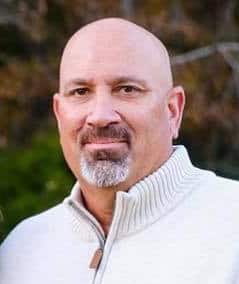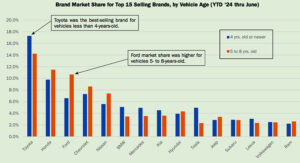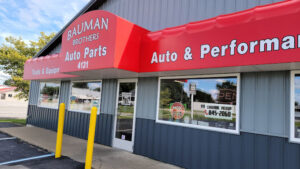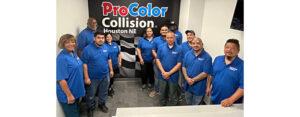Jury finds State Farm had knowingly or intentionally engaged in unfair and deceptive acts or practices with customer’s hail-damaged vehicle
Henderson, Texas—A Texas jury in a Rusk County District Court found that State Farm had knowingly or intentionally engaged in unfair and deceptive acts or practices in Joseph Wayne Collins v. State Farm Mutual Automobile Insurance Company.
“The jury determined that State Farm had unfairly withheld money owed from their policyholder’s settlement and knowingly engaged in wrongdoing,” said Burl Richards, owner of Burl’s Collision Center in Henderson, Texas, the policyholder’s chosen collision repair facility. “The jurors made a statement through their judgment: insurance companies need to take care of their policyholders.”

Collins’ journey to this judgment began over three years ago, in 2020, when he took his Toyota Tacoma pickup truck to Burl’s Collision Center to repair hail damage. After the auto body shop wrote its repair plan, State Farm declared the vehicle a total loss, despite the vehicle owner’s desire to have his truck repaired. Richards said he did not believe the damage exceeded 100 percent of the vehicle’s actual cash value (the threshold in Texas for a vehicle to be declared a total loss), so he recommended his client contact Robert McDorman at Auto Claim Specialists.
McDorman and the third-party appraiser hired by State Farm both agreed that the vehicle had been undervalued by the insurer. “State Farm was taking advantage of our mutual client, their insured,” Richards said.
In the meantime, State Farm retrieved the Toyota Tacoma from Burl’s Collision Center, and although the insurer agreed to pay the total loss charges, they deducted the shop’s blueprint fees and several other line items, reducing the overall settlement paid to Collins by $1,750. “Are blueprint fees necessary?” Richards asked. “I believe they’re necessary, the jury believed they’re necessary, and they believed the insurance company should not have deducted those fees from his settlement.
“State Farm said they weren’t going to make any deductions, but they did it anyway,” he added. “The insurer elected to do the wrong thing every step of the way. They took $1,750 out of the client’s settlement, but the bigger error was that the vehicle should have been repaired as evidenced by the fact that the truck was sold at auction with a clear title. This whole thing could have been avoided if the vehicle had just been repaired in the first place like it should have been.”
Collins hired an attorney to recoup his losses, and when the case was heard in the Fourth Judicial District Court of Rusk County, 10 of 12 jurors found that State Farm had failed to comply with its policy agreement. The insurer’s decision to knowingly and intentionally engage in unfair and deceptive practices carried a penalty of over $175,000 which, when combined with court fees and the original under-indemnification, resulted in a total judgment of $277,048 that State Farm was ordered to pay to Collins.
Richards said the judgment is a “big deal to us and our customer, but it’s not about the money; it’s about making change and hoping insurers will start treating people right. Mr. Collins felt like this was something he needed to pursue from a moral standpoint. It means a lot to have customers who are so passionate about doing the right thing and standing up against bullies like State Farm.”
As not only a body shop owner but also the president of the Auto Body Association of Texas (ABAT), Richards shared another reason this judgment is so important: “We constantly file complaints with the Texas Department of Insurance (TDI) and tell them that insurance companies shouldn’t be making these types of deductions, but this issue has been going on for years.
“Each complaint yields the same generic letter that TDI doesn’t make these decisions; it’s up to a finder of fact to determine what’s fair and reasonable. Well, that’s exactly what happened here. A district judge and the jury — finders of act — felt like this award was warranted. I feel really vindicated by their findings.”












Comments are closed.